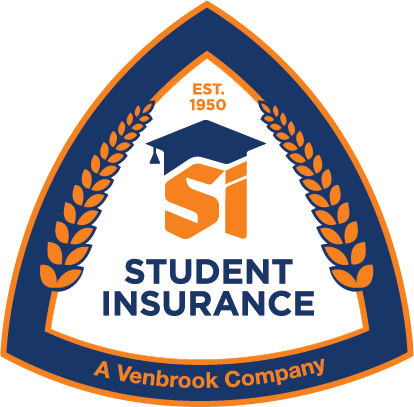Introduction
Picture this: You’re involved in a car accident, and suddenly, you’re dealing with insurance companies, lawyers, and a whole lot of stress. That’s where car accident mediation comes in. It’s like having a neutral referee in the boxing ring of your dispute, helping you avoid a long, drawn-out court battle and reach a fair resolution.
Car accident mediation is a process where two or more parties, such as you and the other driver involved in the accident, come together with an impartial mediator to settle their differences. The mediator’s role is to facilitate a discussion, help you understand each other’s perspectives, and guide you towards a mutually acceptable solution.
Benefits of Car Accident Mediation
Mediation offers a plethora of benefits. First off, it’s a far less adversarial process than going to court. You’re not trying to win or lose but rather trying to find a fair outcome for all involved. Secondly, it’s typically much faster and more cost-effective than litigation. And perhaps most importantly, mediation is confidential, so you can speak openly without worrying about your words being used against you in court.
How to Prepare for Mediation
To get the most out of mediation, preparation is key. Before heading into the mediation session, gather all the relevant documentation, such as insurance information, medical records, and accident reports. Take some time to consider your desired outcome and what you’re willing to compromise on. It’s also helpful to practice communicating your perspective effectively and respectfully.
The Mediation Process
The mediation process typically starts with opening statements from each party. Then, the mediator will guide a discussion, helping you identify common ground and explore potential solutions. The mediator may offer suggestions or ask clarifying questions, all with the aim of helping you reach an agreement.
Tips for Success
To increase your chances of a successful mediation, keep these tips in mind: Stay open-minded and willing to compromise. Focus on your interests rather than your positions. Be respectful of the other party and their perspective. Listen actively and try to understand their needs. And finally, don’t be afraid to seek professional advice from an attorney or counselor if needed.
Car Accident Mediation: A Comprehensive Guide
In the aftermath of a car accident, the prospect of resolving the legal dispute can be daunting. While litigation may seem like the only option, car accident mediation offers a compelling alternative that can save time, money, and stress. This article will explore the benefits of mediation, the process involved, and how to find a qualified mediator.
Benefits of Mediation
Mediation is a form of dispute resolution where a neutral third party, known as a mediator, facilitates a dialogue between the disputing parties. Unlike litigation, mediation is a confidential process, meaning that the discussions and any settlement reached cannot be used against the parties in court. This confidentiality creates a safe space for open and honest communication.
Mediation offers several key benefits. First, it is a faster and more efficient process than going to court. By avoiding the lengthy and often costly legal proceedings, mediation can resolve disputes in a matter of weeks or months, instead of years. Second, mediation is significantly cheaper than litigation. The costs of a mediator are typically far lower than the attorney fees and court costs associated with a lawsuit.
Third, mediation is less stressful for the parties involved. Unlike a trial, mediation does not involve the adversarial nature of the courtroom. Instead, the mediator creates a cooperative atmosphere where the parties can work together towards a mutually acceptable solution. This can help to preserve relationships and avoid the emotional toll that a lawsuit can take.
Finally, mediation gives the parties more control over the outcome of their dispute. In a trial, the outcome is determined by a judge or jury. Mediation, on the other hand, allows the parties to negotiate and craft their own settlement agreement, ensuring that the resolution meets their specific needs.
Car Accident Mediation: A Comprehensive Guide
In the aftermath of a car accident, emotions run high and determining fault can be a daunting task. Car accident mediation offers a structured process to resolve disputes amicably, without the need for costly and adversarial litigation. Here’s everything you need to know to navigate car accident mediation effectively.
Mediator Selection: A Critical Choice
Choosing the right mediator is pivotal to the success of your mediation process. Consider their experience, qualifications, and fees. An experienced mediator will have a deep understanding of car accident law and mediation techniques. Check their credentials, such as certifications or licenses, to ensure their expertise. Their fees should be transparent and competitive.
Preparing for Mediation: Gathering Essential Documents
Before mediation, gather essential documents, including the police report, medical records, insurance information, and any other relevant evidence. This documentation will support your claims and provide a solid foundation for negotiation.
The Mediation Process: A Step-by-Step Guide
Mediation typically involves the following steps: Opening statements, where each party presents their perspective; joint discussions, where both sides explore common ground; private caucuses, where the mediator meets with each party separately; and a settlement agreement, if an agreement is reached.
Key Considerations: Maximizing Your Outcome
Remember, mediation is a voluntary process. You can withdraw at any time if you’re not comfortable with the proceedings. Be honest and transparent in your negotiations. Consider using an attorney for guidance, especially if the case is complex or you have significant injuries or damages.
Benefits of Mediation: A Win-Win Situation
Car accident mediation offers numerous benefits: It’s cheaper and faster than litigation. It preserves relationships between the parties, which is especially important in cases involving friends or family members. It provides a confidential setting to resolve disputes without public scrutiny. And it empowers both parties to have a say in the outcome.
Car Accident Mediation: Navigating the Path to Resolution
In the aftermath of a car accident, finding a fair and equitable solution can be challenging. That’s where car accident mediation comes in – a process that allows the parties involved to settle their differences outside of court with the help of a neutral third party known as a mediator.
What Is Mediation?
Car accident mediation is a form of alternative dispute resolution where an impartial mediator facilitates a dialogue between the parties involved in a car accident. The goal of mediation is to reach a settlement that satisfies both parties, avoiding the need for a costly and time-consuming trial.
What to Expect at Mediation
At mediation, the parties will have the opportunity to present their sides of the story and negotiate a settlement. The mediator will guide the discussion, ensuring that both parties are heard and that the negotiations proceed in a civil and respectful manner.
1. Opening Statements
Each party will present their version of the accident, outlining their injuries, damages, and any relevant evidence. The mediator will listen attentively, asking clarifying questions to ensure a complete understanding.
2. Negotiation
The parties will engage in negotiations, exploring possible settlement options. The mediator will facilitate the discussions, helping them to identify areas of agreement and common ground.
3. Settlement Agreement
If the parties reach an agreement, they will sign a settlement agreement that outlines the terms of the settlement. This agreement is legally binding and resolves all disputes between the parties.
4. When Mediation Might Not Be Right for You
Although mediation is an effective option in many car accident cases, it may not be appropriate in all situations. For example, mediation might not be suitable if:
– One or both parties are unwilling to negotiate or compromise.
– There is a significant power imbalance between the parties.
– The parties have fundamentally different views about the accident or their respective damages.
Benefits of Mediation
Mediation offers several benefits, including:
– Cost and time efficiency compared to a trial.
– Privacy, as mediation proceedings are confidential.
– Control over the outcome, as the settlement is negotiated by the parties.
– Preservation of relationships, as mediation can help parties resolve their differences without further damaging their relationship.
Car Accident Mediation: A Comprehensive Guide
Mediation, a cornerstone of alternative dispute resolution, provides a non-adversarial platform for parties involved in car accidents to resolve conflicts amicably. This article delves into the nuances of car accident mediation, including its benefits, process, and potential alternatives should mediation not yield a satisfactory outcome.
Benefits of Car Accident Mediation
Car accident mediation offers several advantages over traditional litigation. It’s cost-effective, allowing parties to avoid the hefty expenses associated with court proceedings. Mediation is also less time-consuming, meaning parties can reach a resolution faster without prolonged legal battles.
How Car Accident Mediation Works
Mediation involves a neutral third party, known as a mediator, who facilitates discussions between the parties. The mediator does not make decisions but rather guides the conversation and helps parties reach a mutually acceptable agreement. The process typically includes opening statements, discussions, negotiation, and the drafting of a written agreement.
Alternatives to Mediation
If mediation proves unsuccessful, parties can consider other dispute resolution methods.
Arbitration
Arbitration involves a neutral third party who makes a binding decision after hearing arguments from both parties. Unlike mediation, arbitration does not provide an opportunity for parties to reach a mutually agreeable solution.
Negotiation
Direct negotiation between parties, without the involvement of a third party, can sometimes lead to a resolution. However, this option may not be viable if emotions are running high or the parties are at an impasse.
Mini-Trial
A mini-trial is a shortened simulation of a trial, where each party presents their case to a neutral advisor. The advisor provides a non-binding opinion, which can help parties gauge the strength of their respective positions and facilitate a settlement.
Settlement Conference
Settlement conferences are court-ordered meetings where parties can discuss and negotiate a settlement. A judge may oversee the proceedings and provide guidance, but the final decision rests with the parties.
Car Accident Mediation: A Path to Resolution
Car accidents can leave emotional, physical, and financial scars on those involved. When disputes arise, the traditional legal process can be lengthy, costly, and adversarial. However, there’s an alternative that offers a less stressful and potentially more efficient way to find a resolution: car accident mediation.
In mediation, a neutral third party called a mediator facilitates a structured dialogue between the parties involved in the accident. The mediator’s role is to guide the conversation, help identify common ground, and explore possible solutions that meet the needs of both parties. Unlike a judge or arbitrator, the mediator does not make decisions for the parties but rather empowers them to reach an agreement they can both accept.
Benefits of Car Accident Mediation
Mediation offers several advantages over traditional litigation. First, it’s typically much faster and less expensive. Court proceedings can drag on for months or years, while mediation can often be completed within a few sessions. Second, mediation is private, which can be important for parties who wish to avoid the public scrutiny of a trial. Third, mediation encourages parties to resolve their dispute amicably, preserving relationships and minimizing future conflicts.
How to Prepare for Car Accident Mediation
To get the most out of mediation, it’s essential to prepare adequately. Gather all relevant documents, such as police reports, medical records, and insurance information. Consider writing down a summary of your accident experience, including your injuries, property damage, and any other losses you incurred. It’s also helpful to prepare a list of your desired outcomes from the mediation.
The Mediation Process
Mediation typically takes place in a neutral location, such as a conference room or mediation center. The mediator will begin by introducing themselves and explaining the process. Each party will then have an opportunity to present their case and answer questions from the other side. The mediator will facilitate a discussion, helping the parties identify the key issues in dispute and exploring possible solutions.
Reaching an Agreement
If the parties can reach an agreement, they will sign a mediation agreement outlining the terms of their settlement. This agreement is legally binding and enforceable in court. If the parties are unable to reach an agreement, the mediation can be terminated, and the parties may have to pursue other options, such as arbitration or litigation.
Conclusion
Car accident mediation is a valuable alternative to traditional litigation for resolving disputes that arise from car accidents. It offers a faster, less expensive, and more private way to find a mutually acceptable solution. While mediation may not be suitable for every case, it’s worth considering if you’re looking for a less adversarial and more collaborative way to resolve your dispute.




Leave a Reply